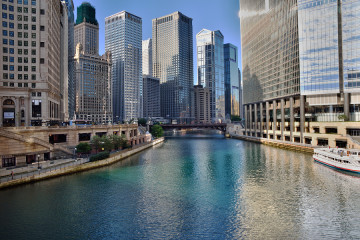What the West Doesn’t Get About Terror: Clive Crook

published Jul 19th 2016, 2:00 am, by Clive Crook
(Bloomberg View) —
The latest terrorist atrocity in France — the country’s third mass-casualty attack in 18 months — demands more than sympathy and solidarity. It calls for a clearer understanding of the threat facing much of the West for the foreseeable future.
Compare two kinds of response to the killings in Nice. On Friday Barack Obama connected the atrocity to the “difficult several weeks” just experienced by the U.S.:
[T]he divide that exists is not between races and ethnicities and religions; it is between people who recognize the common humanity of all people and are willing to build institutions that promote that common humanity, and those who do not — those who would suggest that somebody is less than them because of their tribe, or their ethnicity, or their faith, or their color. And those impulses exist in all our countries.
The problem isn’t religion as such, you see. (Previously Obama went so far as to say that Islamic State is not Islamic.) French Prime Minister Manuel Valls took a different and much simpler line. He said France is at war with radical Islamism: “I want to tell my fellow countrymen that we will win this war.”
Since the horrors of 9/11, the U.S. and its allies have vacillated between these two poles of thinking.
One theory sees Islamist terrorism as outbreaks of irrational incoherent violence — terrible, but no clash of civilizations, no existential threat. Rather, a condition of “chronic violence” that will have to be tolerated indefinitely, until all of us achieve greater enlightenment. At home, confronting this violence is mostly like fighting crime.
The other theory posits war, to be fought with little or no restraint until victory is won. The struggle, on this view, can and will be brought to a decisive conclusion. And because it won’t go on indefinitely, extreme measures can be justified as temporary expedients.
What happened in Nice last week, and in Paris last November, and in Brussels in March, or in New York City and Washington D.C. in 2001, and again and again in cities around the world since then, conforms to neither of these models. You might say this is obvious, and it is. Even so, the West hasn’t come to terms with it.
The war model doesn’t work. Violent Islamism is an idea and a project, not a state — notwithstanding the pretensions of the entity calling itself Islamic State — and mere force can’t defeat it. There’s no telling when or whether these attacks might stop. And until they do, there’s no military defense against a neighbor willing to die in the act of making his point by crushing children with a truck.
Equally, these appalling acts aren’t just loosely connected episodes of psychopathic violence. The perpetrators have a purpose, a religious rationale, and a global network of supporters and enablers. The scale of their project, its ambition, and its limitless cruelty make it far more dangerous than previous terrorist enterprises — both in its own right (imagine nuclear materials), and also because of the risk of backlash, which the attacks are intended to provoke.
In security policy, whether they like it or not, governments have been forced to recognize this new normal: less than waging war, more than fighting crime. The U.S. and its allies are killing Islamic State leaders where they can and weakening the group’s hold on territory in Iraq and Syria. In the teeth of fierce opposition, they’ve shifted the domestic balance between safety and civil liberty, expanding surveillance and intelligence-gathering, despite the cost in diminished privacy and resentment at unchecked government power.
More can be done — on the ground in fighting Islamic State, and at home, where it’s less a question of expanding powers than using what governments now have more effectively. Europe’s deficiencies in intelligence-sharing, for instance, remain a critical vulnerability.
Where political leaders have truly failed, however, is in explaining their actions to fearful and justifiably skeptical citizens. Perhaps these leaders just don’t understand their own policies. The war France has declared can’t be won. At the other pole, it’s no help to say that violent Islamism is of a piece with ordinary bigotry, to deny that Islamic principles have been used to justify violent Islamism, or to suggest it’s irrelevant that the attackers are Muslims.
Obama’s aim of course is most laudable: to say that the great majority of Muslims worldwide deplore violent Islamism, that American Muslims are friends, neighbors and fellow citizens, and to appeal for unity. Yet this message can surely be delivered without denying the obvious — which is that Islam is in crisis and counts among its followers a substantial and unappeasable minority profoundly at odds with Western liberalism, and within that minority many who look tolerantly on violence against the infidel.
If the words to say this can’t be found, it might be better to say nothing about the terrorists’ motivations. Denying what voters can see in plain sight doesn’t ease anybody’s fears or unify nations against their attackers. It strengthens populist movements that hope to gain power by setting race against race and faith against faith — movements that may come to pose an even greater threat than the terrorists.
The U.S., France and its friends must steel themselves for a trial of years if not decades. Of this trial’s many tests, one of the most difficult will be, as George Orwell once said, the constant struggle to see what is in front of one’s nose.
This column does not necessarily reflect the opinion of the editorial board or Bloomberg LP and its owners.
To contact the author of this story: Clive Crook at ccrook5@bloomberg.net To contact the editor responsible for this story: James Gibney at jgibney5@bloomberg.net
For more columns from Bloomberg View, visit Bloomberg view
copyright
© 2016 Bloomberg L.P







No Comment